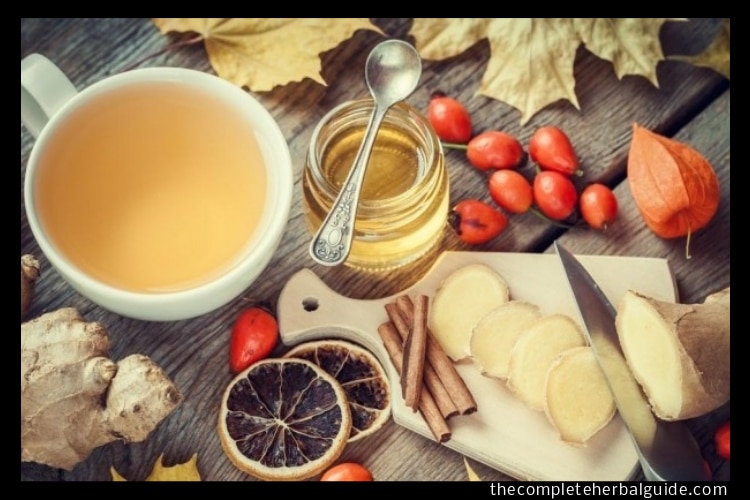
Best Essential Oil for Achieving Calmness
The essential oils in Lavender soothe headaches, calm nerves, ease depression, dizziness and stress, and will even combat halitosis. Lavender’s antibacterial properties work to combat bacteria in the intestines, and it is also an antiviral and antifungal, working against yeast infections, diphtheria, typhoid, staph, strep, and many flu viruses. It is an effective tonic that improves intestinal health. This fragrant herb is necessary for every home.

Table of Contents
Plant Description:
Lavender is a shrubby, flowering perennial that is indigenous to the mountainous regions of the western Mediterranean and is cultivated extensively for its aromatic flowers and many medicinal applications throughout Europe, the United States and Australia.
There are many species of Lavender grown in Europe that are used with similar applications; and interestingly, when English Lavender (Lavender officinalis/Lavandula angustifolia) is grown in France, it is often traded as French Lavender, but French Lavender is a different species (Lavandula dentata). The plant grows to about two or three feet in height.
History:
Lavender was widely used in ancient Egypt for its fragrance, and it was a favorite in the homes of Greeks and Romans. Even its name is derived from the Latin, lavare, meaning, “To wash,” because it was used in scented baths.
In Arab medicine, Lavender was used as an expectorant and antispasmodic, while European folk medicine regarded it as essential for healing wounds and as a worm remedy for children.
Traditional herbalists used it to treat conditions of the nervous system, and even the hard-working Queen Elizabeth I took it with sugar to ease tension. In the Middle Ages, Lavender was a popular “strewing herb,” not only for its fragrance but also for its insect repellent properties.
In France, the town of Grasse used Lavender in their glove-tanning process, and when the town remained remarkably free of plague, it encouraged people elsewhere to carry the herb to ward off pestilence. This fragrant plant is famous for its wonderful aroma, which is much used in the perfume industry. It is also widely used medicinally and is a staple of aromatherapy to promote relaxation. Lavender’s many constituents include essential oils, tannins, coumarins, flavonoids, and triterpenoids.
Medical Uses:
Lavender has been used for centuries as a tonic to ease conditions of the nervous system. It is a relaxant that calms nerves, relieves fatigue, depression, migraine and tension headaches, nervous exhaustion, irritability, and excitement.
The essential oils in Lavender act as a mild sedative on the heart and may be effective in lowering blood pressure.
Lavender is used to promoting good digestion. It has a mild sedative effect that is used to ease colic, nausea, vomiting, indigestion and other stomach problems. It is considered a “carminative” which will reduce flatulence and relieve a “gassy” stomach, and it is a diuretic.
Lavender is an effective tonic that works to improve intestinal health. As a “cholagogue,” it stimulates the flow of bile from the liver to the intestines, and its antibacterial properties are useful in combating putrefactive bacteria in the intestines. Its antiviral, antifungal and antiseptic properties are thought to inhibit the activity of yeast infections, diphtheria, typhoid, staph, strep, and many flu viruses.
Used externally, Lavender may be added to a sachet, which will repel insects, create a pleasant fragrance to relax the nerves, and possibly help to avoid dizziness and fainting.
Applied topically, the essential oils in Lavender act as an antiseptic and painkiller, helping to relieve insect bites and stings, skin diseases, such as eczema and psoriasis, and minor burns. It also makes a fine mouthwash. Added to bathwater, Lavender calms irritable children and relaxes adults, and mixed with water, it makes a fragrant hair rinse.
Precautions:
Pregnant women should avoid taking Lavender internally, as it may stimulate uterine contractions. Excessive use of this product (many times the recommended dosage) may cause drowsiness.






